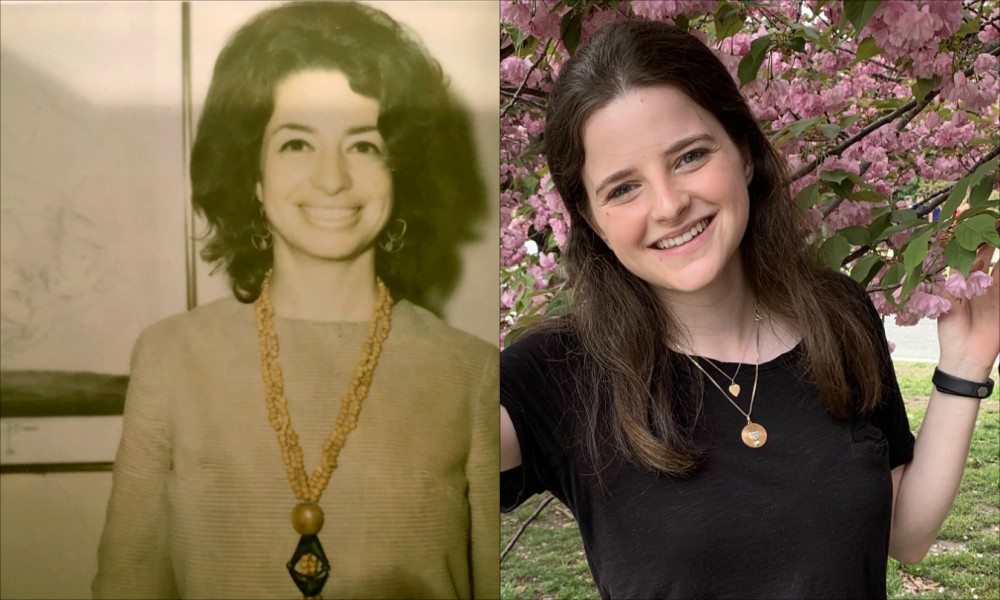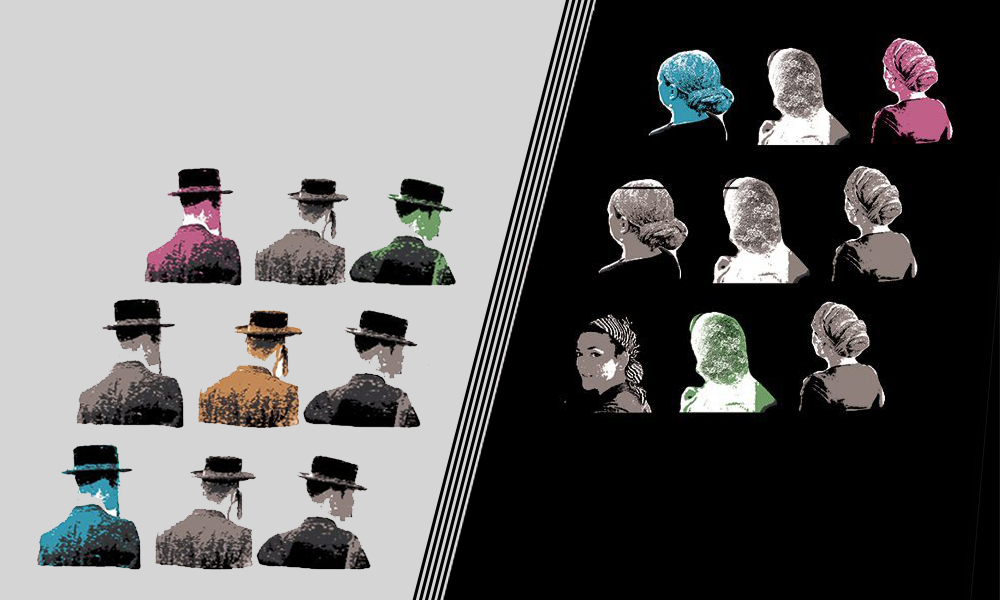The search for happiness is as old as humanity itself. In Jewish culture, the subject of happiness surfaces in biblical psalms, rabbinic commentary, Talmudic pilpul and the musings of the Mussar and Hasidic movements, to name a few. Confronted with the absolute devastation and evil of the Holocaust, Jewish thinkers revisited the topic. Among them was survivor and psychiatrist Viktor Frankl, who gave birth to what is now called positive psychology, the scientific study of how to make people happy. In recent years, Jews have been at the forefront of advances in neuroscience, regarded by many as the next frontier of happiness research. With this symposium, we attempt not to discover the secret to happiness, but to explore Jewish insights into this all-too-elusive state of mind.
Interviews by Sarah Breger, Rachel E. Gross, George E. Johnson, Sala Levin
Featuring: Robert Alter | Tal Ben-Shahar | Michael Broyde | Oliver Burkeman | Richard Davidson | Tirzah Firestone | Alan Morinis | David Pelcovitz | Pninit Russo-Netzer | Hava Tirosh-Samuelson
David Pelcovitz
The English word “happiness” is related to the prefix of words like “happenstance,” “hapless” and “haphazard,” which implies that happiness is tied to chance: If you’re lucky enough to have the right kind of life or the right kind of possessions, you’re more likely to be happy. In fact, if you ask a group of Americans, “What do you think is most likely to make you more happy?” the number one answer is “more money.”
The corresponding Hebrew word for happiness is simcha, whose meaning people find by putting together the words sham [there] and moach [head] or “where your head is at.” It’s tied to purpose and meaning. The founder of Hasidism, the Baal Shem Tov, encapsulated the cognitive element of well-being in his statement, “If you want to know where the essence of a person is, look at his or her thoughts.” The 20th-century halachic sage the Chazon Ish captured the existential element of well-being when he said, “For one who knows the light of truth, there’s no sadness in the world.” Maimonides, in his writings on happiness, said you can make yourself happy on a holiday by indulging yourself, but true happiness is tied to reaching outside of yourself, inviting unfortunate people to your table. In traditional Jewish writing, tying happiness, simcha, to meaning is the essence of happiness.
There are different Hebrew words for happiness referring to different aspects of happiness. For example, the Malbim, a 19th-century Russian rabbi, contrasts gila, which describes peak moments of joy, with the enduring emotion expressed by simcha. The 18th-century rabbinic leader the Vilna Gaon contrasts the words sasson and simcha. For him, sasson is happiness tinged with sadness. For example, when parents say goodbye to a child under the huppah, the word sasson is used, because they are of course happy but also sad that their child is leaving home.
Happiness doesn’t have to be tied to a religious perspective; it could come from a purely secular point of view. Sometimes we find the most meaning or the most happiness when we’re energized by our signature strengths, our uniqueness or sense of connection and meaning, especially when it’s somehow joined to the greater good.
David Pelcovitz is a professor of psychology at Yeshiva University and the co-author of the forthcoming Positive Psychology: Jewish Perspectives.
Tal Ben-Shahar
I was raised in an Orthodox home and find that many of the key ideas in the field of positive psychology can be found in ancient Jewish texts. For example, the idea of Shabbat. Today we know how important it is to take time for recovery, which not only contributes to happiness, but also to productivity and creativity. Or take the idea of gratitude: The first word that a religious Jew says in the morning is modeh, to give thanks.We know from research that expressing gratitude on a regular basis contributes to well-being, kindness, physical health and success. Finally, Judaism focuses a great deal on hakarat hatov, appreciating what works. That’s positive psychology in a nutshell.
Here are a few happiness lessons from my research, which resonate with Jewish thinking:
• Give yourself permission to be human. When we accept emotions such as fear, sadness or anxiety as natural, we are more likely to overcome them. Rejecting our emotions, positive or negative, leads to frustration and unhappiness.
• Happiness lies at the intersection of pleasure and meaning. Whether at work or at home, the goal is to engage in activities that are both personally significant and enjoyable. Research shows that an hour or two of a meaningful and pleasurable experience can affect the quality of an entire day or even a whole week.
• Happiness mostly depends on our state of mind, not on our status or the state of our bank account. Barring extreme circumstances, our level of well-being is determined by what we choose to focus on and by our interpretation of external events. For example, do we focus on the empty or full part of the glass? Do we view failures as catastrophic, or do we see them as learning opportunities?
Tal Ben-Shahar taught the popular course The Science of Happiness at Harvard University and is the author of several books relating to the art of happiness.
Robert Alter
The book of Psalms devotes much space to discussing happiness. Since the Psalms were composed for use in and around the Temple, it’s not too surprising that one of the chief criteria for happiness is being in and around the Temple. When the psalmist says, at the end of the 23rd Psalm, “And I will dwell in the house of the Lord for very long days,” that’s happiness. Unlike the Christian reading of that verse, which translates it as “forever,” the Hebrew phrase l’orech yamim does not mean “forever.” The house of the Lord is not a celestial heaven, but it is the Temple standing in Jerusalem.
The second criterion is the pleasures of a simple life in the bosom of the family. In Psalms, you have a man dwelling in his house with his sons sitting around the table, and, in a very sexist formulation, his wife is a fruitful vine in the corners of his house. You accept the blessings of family, of married love, of children.
The third general criterion for being happy in Psalms is a causal, ethical one. The psalmist assumes that if you live the good life, if you follow God’s teaching, if you defend the widow and the orphan and show compassion to the poor and so forth, it will pay off. You will prosper, you will be happy, as in the famous formulation, “I was a lad, I also grew old, and I have never seen a righteous man hungry or his seed seeking bread.”
Of the three criteria in Psalms, the one about the Temple is no longer relevant because the Temple no longer stands. The moral calculus for happiness—do good, and good will be done unto you—doesn’t really square with the facts of experience. I think the second criterion—the cluster of attributes of the happy life—is one that makes more sense to us. That is, be happy in your portion, as Pirkei Avot says. Enjoy life with a woman whom you love; revel in the simple pleasures of family.
Robert Alter is a professor of Hebrew and comparative literature at the University of California at Berkeley and the author of The Book of Psalms: A Translation with Commentary.
You can make yourself happy on a holiday by indulging yourself, but true happiness is tied to reaching outside of yourself, inviting unfortunate people to your table.
Tirzah Firestone
According to Jewish mystical teachings, awareness of both God and joy are states of expanded consciousness. They belong together and mutually affect each other. So a person who is God-conscious, who knows there is unity in the world that we’re all part of, naturally becomes joyful. And a person who is joyful, even when the world is a dark place, draws closer to God. And it is in joy that we find redemption. In Hebrew, faith in a better world and joy are embedded in the Hebrew words simcha [happiness] and mashiach [redemption], sharing the same letters.
Many Hasidic masters taught that we can’t allow ourselves to to lose hope. Even when we’re grieving, it is through joy that we stay connected to God. There’s a beautiful teaching based on the Zohar that says, “God finds a joyful person so irresistibly appealing that God can’t refuse even a joyful sinner entering into his presence!” The message is really that joy opens doors, much more so than when we are brought down by the tzuris of this world. How we do that is not to think about joy, but to act with joy—to sing and dance. That’s how we do it in Jewish Renewal. We need to elevate ourselves to another level to remember that there is something beyond our worldly concerns.
It’s not that we turn away from tzuris, or from what needs to be addressed. We do have to attend to the work of the world in fixing things. But being together in joy helps us do the work of the world. It’s about bringing in another energy altogether that helps the work be done. So the Zohar teaches that joy is irresistible, and when we’re joyful it magnifies something on high that helps all of our work go more easily. There’s a world above and there’s a world below, and when we’re joyous, it’s mirrored above, and reflects back to us in a reciprocal fashion.
Tirzah Firestone is a rabbi, psychotherapist, and the author of The Receiving: Reclaiming Jewish Women’s Wisdom.
Pninit Russo-Netzer
Perhaps no Jewish thinker has influenced modern psychology as much as Viktor Frankl, a Viennese psychiatrist, neurologist and Holocaust survivor who founded the branch of existentialism known as logotherapy, a meaning-focused approach to therapy. Based on the concept logos, the Greek word for meaning, logotherapy provides a therapeutic framework and vocabulary for addressing meaningful and authentic living; it encourages us to see people and situations not as they are but rather as they could be.
According to logotherapy, life is intrinsically and unconditionally meaningful in all circumstances, even the most challenging ones. Every moment in human existence holds a call for meaning, each situation in life is an opportunity to discern meaning. Frankl’s inspiring personal experience as a prisoner in the Nazi concentration camps is a living testimony to the defiant human spirit in face of the most extreme dehumanizing conditions. In the darkness of oppression and physical and psychological deprivation, Frankl experienced in himself and identified in others an inner spark—a force by which he was able to rise above suffering and despair and choose to take a stand, to embrace and fulfill human potential. That choice imbues life with meaning.
Frankl refers to the uniquely human freedom of will not as freedom from conditions, but as the freedom to take a stand. The freedom to choose an attitude in response to inevitable life challenges generates optimism, future rather than past orientation and a triumphant rather than a victim mentality; it’s an opportunity for moral growth, courage and strength in the face of the fragility and finitude of life. In this sense, we are shaped by the choices we make. However, Frankl warns that “freedom threatens to degenerate into mere arbitrariness unless it is lived in terms of responsibleness.”
The notion of self-transcendence—extending our existence beyond our individual selves—is one of the core elements in logotherapy. It refers to the unique human ability to rise above and beyond oneself by serving a higher purpose (such as family, devotion to faith, community or commitment to contribute to the greater good). According to Frankl, transcending the self enables individuals to uncover their full potential as humans: “The more one forgets himself—by giving himself to a cause to serve or another person to love—the more human he is, and the more he actualizes himself.”
Pninit Russo-Netzer is a researcher in the Department of Counseling and Human Development at the University of Haifa, and is the co-editor of Meaning in Positive and Existential Psychology.
Our level of well-being is determined by what we choose to focus on and by our interpretation of external events. Do we view failures as catastrophic or learning opportunities?
Oliver Burkeman
If you go back through philosophy, happiness is an important value. Quoting Aristotle, happiness is the only thing we value for its own sake. For the ancient Greek and Roman Stoics, happiness was understanding that even if things were bad, we can retain peace of mind—that it’s our beliefs about events rather than the events themselves that cause distress.
I spent months in the library trying to come up with a working definition of happiness before concluding that if philosophers hadn’t figured it out over millennia, I probably wasn’t going to do any better. It’s a placeholder word—there is no definitive meaning. The problem with it is that it begins to slip through your fingers. The ideas we’ve been taught today are not only impractical but also counter-productive: that the only way to achieve anything worthy of the name “happiness” is to try to make all our thoughts and feelings as positive as possible, to set incredibly ambitious goals, to visualize success.
I argue that we might be better off easing up on all this relentless optimism and finding ways to embrace failure, uncertainty, imperfection and insecurity instead. Relentless positivity and optimism are not the same thing as happiness and can actually make you feel worse. I use the phrase “negative thinking” primarily to mean easing up on trying to eliminate negative feelings and experiences—and learning to tolerate or even maybe enjoy uncertainty, insecurity and the possibility of failure. But there are some contexts in which deliberately “thinking negative” is helpful. Certain forms of pessimism and dwelling on worst-case scenarios can be really helpful for eliminating anxiety about the future and preparing yourself for inevitable setbacks. This may lead to a more authentic happiness.
Oliver Burkeman is the author of The Antidote: Happiness for People Who Can’t Stand Positive Thinking.
Hava Tirosh-Samuelson
For traditional Jews, the life dictated by the divinely revealed Torah is the objectively good life. To live the life of Torah meant to walk the path of divine wisdom. This notion can be traced to the Bible, especially the so-called wisdom strand of biblical literature, and it is stated most clearly in the Book of Proverbs and in the Book of Psalms. Psalm One states that the best-lived life is one devoted to the Torah of God; through it, one can become as righteous as God is. The life of Torah demands the cultivation of moral virtues as well as know-ledge about the relationship of Torah to God’s created world.
Psalm One offers the foundation to the Jewish approach to happiness. First, happiness is not a momentary sensation of pleasure but the quality of life as a whole. Second, happiness should be understood as an activity, rather than a static condition or a fleeting sensation. Third, happiness is predicated on the acquisition of inner dispositions to behave and to feel in a certain way. These are the character traits, or virtues, that make us good. Fourth, happiness requires knowledge about the nature of human beings and their place in the cosmic order.
Psalm One portrays the happy life as a life that is intrinsically good, a path taken for its own sake rather than for the sake of someone or something else. The happy person is the one who actualizes the best life, a life in which a single, overarching purpose endows everything with meaning and makes the various parts of life fit into an organic whole.
Rabbinic Judaism developed the biblical characterization of a happy life by spelling out the character traits of the ideal Jew and the knowledge required for the attainment of the good life. Moses Maimonides went much further than the Bible and the rabbis by claiming that to live the happy life, one must not only live by the commands of the Torah, but one must understand the philosophic meaning of the Torah. To be a good Jew and live the intrinsically good life, one had to become a philosopher. Thinking about happiness is important because it involves thinking about the meaning of being human, the purpose of human life, the best social order, the role of religion and the content of education. It behooves Jews to reflect on it in order to understand their own tradition and its relevance to contemporary life.
Hava Tirosh-Samuelson is the director of Jewish studies at Arizona State University and the author of Happiness in Premodern Judaism: Virtue, Knowledge and Well-Being.
We know from research that expressing gratitude on a regular basis contributes to well-being, kindness, physical health and success.
Michael Broyde
Happiness is an important value in classical Judaism but it is not the most important value. In the Jewish tradition obedience to law is the value. A person cannot claim “being obedient to the law makes me unhappy and that gives me license to break the law,” any more than they can claim this about American law.
On the other hand, if happiness is a value but it is not the core value it frequently is in American ethics when we talk about personal autonomy, how should it be considered? Halacha, I think, views personal happiness as a second-order principle. Frequently, halacha has more than one reasonable option, and when it determines which of the reasonable options to choose from as normatively proper, halacha will look at the idea of joy as a factor to consider in deciding whether to adopt this choice or that choice.
For example, in the Talmud, the rabbis said people who feel particularly finicky when they don’t bathe are allowed to bathe as a mourner. The rabbis of the last century permitted a person to carry the key to his safe box on Yom Tov if he is so afraid a burglar will come and steal the safe box that it affects his Festival happiness.
Overall, there is something very intellectually fascinating in the aphorism coined by the Mishnah Berurah itself—“Content is the one who worships God with Happiness” (477:5)—as a basic measure of what happiness ought to mean.
Rabbi Michael Broyde is a law professor at Emory University and a senior fellow at the Center for the Study of Law and Religion.
Alan Morinis
There’s a distinction between happiness and joy. Happiness is getting what you want. It is connected to identity—your desires, your expectations—but it’s not lasting and it’s ego-based. The Jewish tradition doesn’t really advocate what we would call happiness. Joy is what Jewish tradition is about. Jewish teaching is more about getting beyond yourself than satisfying your personal desires. It’s about connecting, joining and feeling that much deeper sense of fulfillment and completeness that isn’t possible for the solitary individual.
Most people don’t have that many opportunities for really deep connection. We live in a society that stresses individual satisfaction. That’s a hurdle, because guiding people to transcend the individual and to get beyond believing that momentary satisfaction is the goal contradicts the dominant messaging that runs through the culture. Joy comes to an open heart that connects to other people. And if you have that, you are also going to feel their sorrow and their pain.
The Mussar approach is really about the journey of the soul. One of the things that Mussar teachers talk about is that we are here in life to develop wholeness, completeness, the idea of shleimut. We are partial, we are broken, we are incomplete; but we have the potential to cultivate ourselves to become more whole. The pursuit of happiness generally does not lead to more wholeness. It leads to momentary satisfaction, which is pleasant but transient. Joy has much more of a lasting and transforming quality. You find, for example, the story in the Torah of David and Jonathan, where it says that their nefashot, their souls, “knit together,” and that they had the experience of being one. They knit together; that’s the source of the joy we can know in a marriage, family and good friendships.
It’s not intellectual, not a teaching. It’s an emotional and direct experience. If you bring two people into real communication with each other or you bring together a small group of people, something so much deeper and more satisfying and fulfilling happens at that level of the soul. When people experience that real sense of bonding, it generates joy and demonstrates to them the difference between real connection and the ordinary ways of being in the world.
Alan Morinis is founder and dean of The Mussar Institute and the author of With Heart in Mind: Mussar Teachings to Transform Your Life.
There’s a world above and there’s a world below, and when we’re joyous, it’s mirrored above, and reflects back to us in a reciprocal fashion.
Richard Davidson
I use the word happiness as a placeholder for something that I think of as broader well-being, flourishing and having a deep sense of security and satisfaction. The reason I think it’s important is because it will shape everything that we do, all of our interactions with others. It’s also a critical factor in determining how we respond to life’s slings and arrows, how we respond to adversity. And it’s associated with physical health: The data clearly show that happy people are healthier.
We’ve found that simple meditative practices from contemplative traditions, mostly the Asian contemplative traditions, turn out to be important to well-being. Through the regular practice of these methods, new connections in the brain can be formed and circuits can be strengthened, and there are corresponding changes that occur in behavior and experience. We’ve been led to the inevitable conclusion that happiness is something that can be learned.
The key is systematic regularity of these practices, doing them very regularly, daily, in a way that will change brain function. We know from neuroscience that to build new connections in the brain and to strengthen neurocircuits, systematic practice is required.
One of the things we distinguish in neuroscience is declarative knowledge, which is knowledge about stuff, and procedural knowledge, which is embodied knowledge. It’s like learning to play a violin or learning to ride a bicycle: You can read all the books you want about it, but it isn’t going to help.
Richard Davidson is a professor of psychology and psychiatry, and founder and chair of the Center for Investigating Healthy Minds at the Waisman Center at the University of Wisconsin-Madison. He is the co-author of The Emotional Life of Your Brain.















The opening question, “What makes us happy?” is a misleading question.
Happiness is a choice. Most humans don’t choose. We get distracted by pretty things, comparisons with others, our thoughts about how life “should be” or the possessions we “should” have. Instead of choosing, we let our judgements choose for us, and they mostly choose that life isn’t good enough or we aren’t good enough, or something’s wrong with the world, leaving us unhappy. We’re humans- our brain is always generating thoughts, mostly inaccurate, mostly simplistic generalizations, and creating emotions consistent with them. If you want to be happy, don’t give significance to your thoughts. Don’t empower your attachments and emotions. Enjoy them, they’re yours, but don’t believe the “reality” they seem to reflect.
If you could always be happy, would you choose to be, always? I don’t. It’s nice to be happy when I want, but why fight normal emotions? I intervene when my thoughts and emotions get in the way of what I’m up to. I especially intervene when it seems that I’m suffering.
The whole question of “what makes us happy” leads us down a false path, a wild goose chase. It seems like some things make us happy, but it’s not true. What makes a relationship work? What makes life fulfilling? What makes us happy? What creates a life of love? The answer is all the same, being responsible. Not for your choices or behavior, but for how you’re being, for who you are.